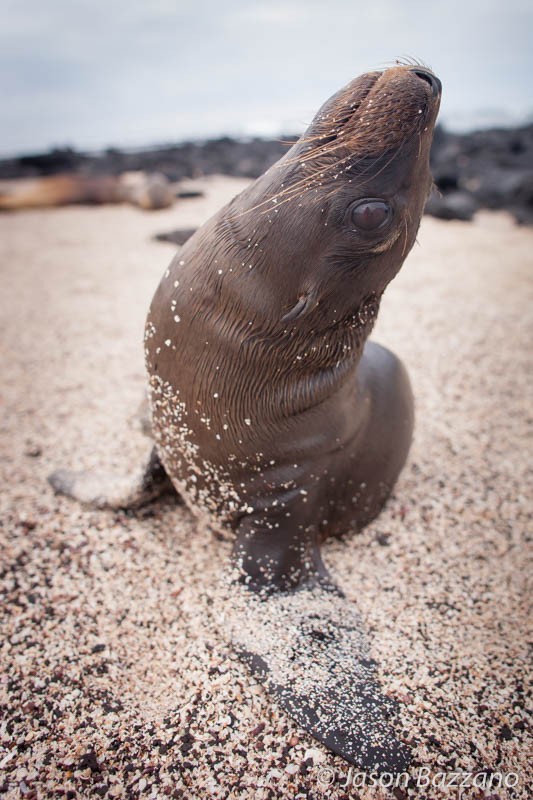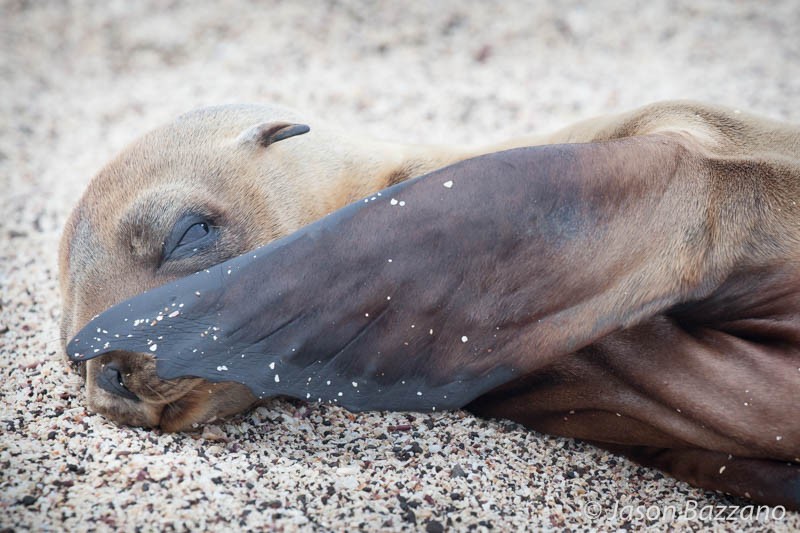My wife and I recently had a baby girl. It’s been a fascinating journey for me, and I think it’s probably safe to say the same for our daughter. Her default facial expression is eyes wide, brow furrowed, and mouth slightly agape. She looks and acts like a sea lion: cute and fuzzy, with a certain cavalier attitude with body fluids and table manners, and a tendency to look like she’s putting all her effort into keeping her head stable while she rolls her eyes around, taking in the scene.
Now that she’s attained reasonable mastery of the motor skills involved in tracking objects with her eyes and then putting them in her mouth, it would seem that she’s finally acquired her first main tool in learning about the world: her powers of observation.
The ability to observe one’s environment and learn from it, of course, is an important asset for all of us; indeed, for a short while it’s pretty much all we’ve got. However, we’d lead a pretty simple life if all we knew was what we’d directly observed. Our ability to assimilate abstract information from a wide range of sources allows us to expand our understanding of the world incredibly quickly and efficiently. To be able to read a book, talk to a friend, or even read a blog post on a given topic is really a remarkable ability we have at our disposal.

However, for better or for worse, it’s human nature to take shortcuts, and so we often fail to make a sufficient effort to verify the accuracy of incoming information. This can lead to the unfortunate situation where the crux of a new idea, project, or assertion is based on faulty information, wasting everyone’s time and spreading misinformation (which, by the way, makes you a jerk).
Here’s what you can do to avoid such a situation. First, brush up on your skills of observation and investigate any available clues. (Remember? When you were little?) Next you should choose one of the following two options:
- Investigate the holes in your understanding, and fill them.
- Be satisfied with an incomplete understanding, but recognize that it is incomplete.
Just to emphasize: I’m not saying that you have to verify every little bit of information that you receive – that would take forever. You have to pick and choose the important tidbits.
Did your friend tell you that celebrity X has questionable moral integrity? If you don’t care, you don’t need to give it a second thought. No need to take your valuable time to verify the information, and no need to waste someone else’s time in repeating it. If you DO care about something, however, don’t you think it’s worth looking into? For example, did someone on TV tell you to buy gold? Perhaps it’s worth digging a little deeper before you spend your retirement fund on bullion.
Blowing your life savings at the bidding of a talking head is a bit of an extreme example; many people (I hope) would be inclined to remark, “Of course I wouldn’t take the investment of my retirement savings lightly – it’s way too important to me.” Well, good. Naturally, I also hope that you would care enough about other topics (besides your retirement) to think about them thoughtfully and carefully, as well. Furthermore, I would hope that most of the things that you spend your time thinking about warrant this sort of importance – I mean, if you’re wasting your time thinking about things that even you don’t find important…well, I humbly suggest you may want to set aside some time for some serious introspection.
At any rate, the above instructions form the basic foundation for “thinking like a scientist.” Pretty simple, eh? I’ll elaborate more on this in subsequent posts, but in the meantime, it’s worth emphasizing that applying these concepts to daily living not only can elicit relatively prosaic gains (e.g., in personal productivity), but more importantly it can enrich your life with an understanding of how and why things happen.
Not only is this extremely satisfying simply in the capacity of a mental exercise, but as you accumulate more data points and more connections, you begin to see how things fits together, how they relate to you, and how you can use this information to your advantage. Certainly one cannot know everything there is to know, but as we explore the world with a little scientific rigor we soon find that many things are related, familiar, understandable, and – of course – utterly fascinating.

